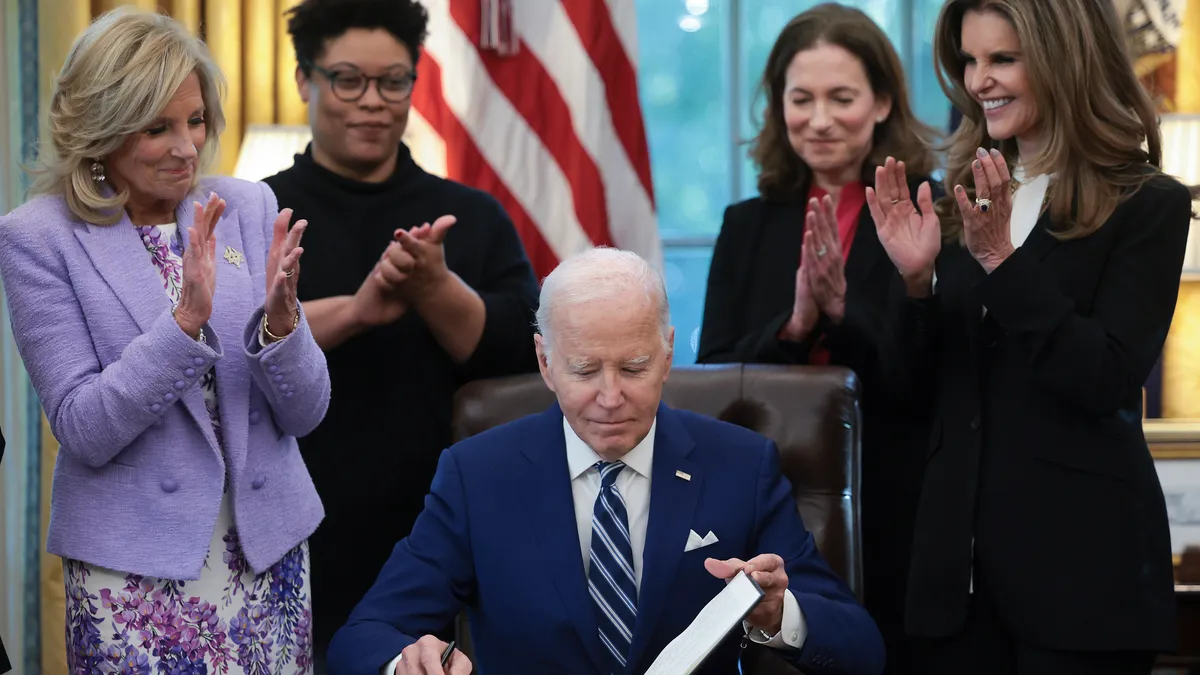Dive Brief:
- The White House on Monday unveiled a new initiative, under the leadership of First Lady Jill Biden, designed to close pervasive gaps in research by spurring innovation and investment in women’s health.
- The program aims to establish priorities to guide federal research investments, improve coordination among agencies, engage scientific communities and develop public-private partnerships, and form recommendations to address health disparities affecting women, the Biden administration said in a memorandum.
- Medtech trade group AdvaMed issued a statement in support of the White House effort. The group said it is working to advance more inclusive research, development and funding of technologies through a board-level committee to address health disparities and subcommittee specifically focused on women’s health.
Dive Insight:
A lack of research and data on women’s health has left providers without the tools to adequately diagnose and treat conditions, including cardiovascular disease, Alzheimer’s disease, autoimmune disorders and mental health conditions in women. The White House also flagged research gaps in menopause and endometriosis.
“Research on women’s health is drastically underfunded, leading to significant research gaps, with serious consequences for the health of women across the country,” the administration said.
The White House Initiative on Women’s Health Research will be chaired by Yale University professor Carolyn Mazure, who will coordinate the work of the Office of the First Lady and the White House Gender Policy Council.
Initiative members are expected to recommend “concrete actions” within 45 days that the Biden administration can take to improve how research on women’s health is conducted and maximize the administration’s investments in that research, the White House said.
AdvaMed said it would work with the administration to support equitable development of innovative technologies and access by women and other underserved populations.
“Women face different health issues than men, and the health issues they share must often be treated differently to ensure the same outcomes,” DeChane Dorsey, AdvaMed’s staff lead on health equity and women’s health, said in a statement. “Despite this, women are not adequately represented at critical phases of the innovation process, from inception to product development.”










